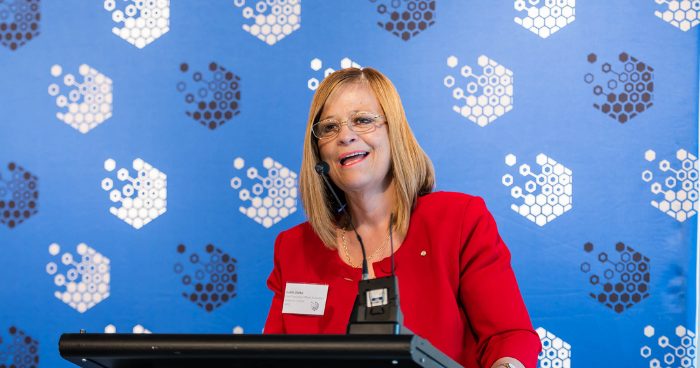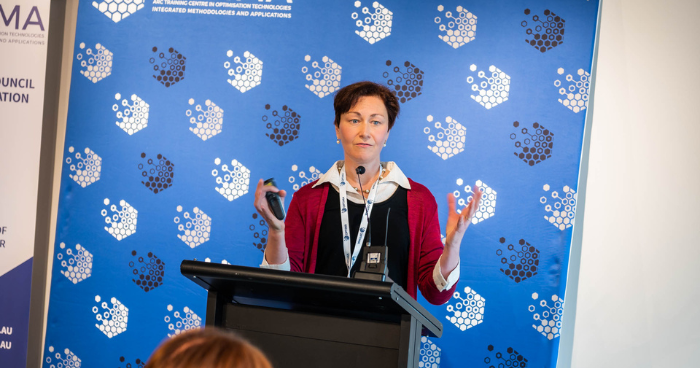OPTIMA ARC Training Centre aims to transform industry through optimisation
A new ARC Industrial Transformation Training Centre is helping to bring the cost-saving benefits of optimisation technology to Australian industry, water authorities and more.
The ARC Training Centre in Technologies, Integrated Methodologies and Applications (OPTIMA) is an industry-university partnership providing industry partners with the optimisation skills and tools needed for global competitiveness.

University of Melbourne Vice-Chancellor Professor Duncan Maskell.
Australian Research Council (ARC) CEO, Judith Zielke officially launched the Centre on 16 November at the Melbourne Connect innovation precinct in Parkville, with University of Melbourne Vice-Chancellor Professor Duncan Maskell and Monash University Vice-Chancellor Margaret Gardner in attendance.
 Australian Research Council CEO Judith Zielke.
Australian Research Council CEO Judith Zielke.
Optimisation draws on the power of digital technology and sophisticated algorithms to find efficiencies for global competitiveness. When approaching complex problems – such as designing aircraft or generating renewable energy – companies need to evaluate multiple options.
Substantially reducing time-consuming, trial and error approaches, optimisation uses algorithms to analyse data more quickly and identify the best options to reduce waste, cost and production time, and improve performance and competitiveness.
OPTIMA is a partnership between the University of Melbourne, Monash University, two international universities and nine industry partners. During its first 12 months, over 100 researchers worked with industry partners in the advanced manufacturing, energy resources and critical infrastructure sectors, including AGL, Melbourne Water, Future Fibre Technologies, Mecca Brands, ProbeCX, Southeast Water, Boeing Australia, the Australian Bureau of Statistics and ENGIE.

OPTIMA Director Professor Kate Smith-Miles.
Centre Director, University of Melbourne Professor of Mathematics Kate Smith-Miles, said OPTIMA’s research expertise spans many academic disciplines that contribute to optimisation technologies, including mathematics, statistics, computer science, economics and engineering.
“At OPTIMA we are breaking down our disciplinary and institutional silos to advance optimisation technology, inspired by the complex decision-making problems faced by our industry partners,” Professor Smith-Miles said.
The opportunity to deliver impactful industrial transformation, while simultaneously advancing our research field, is hugely motivating for all of us.
The launch showcased the first year of OPTIMA’s achievements, including projects to assist AGL to optimise turbine production, improve aircraft design for Boeing, and optimise environmental outcomes in urban water systems for Melbourne Water.
OPTIMA collaborations across the University of Melbourne include:
- The optimal design of new molecules in the School of Chemistry.
- The optimal management of water resources in the School of Ecosystem and Forest Sciences.
- Materials Engineering optimal design of polymers.
- Optimisation in epidemiology and fire management.
Learn more about OPTIMA here: https://optima.org.au/